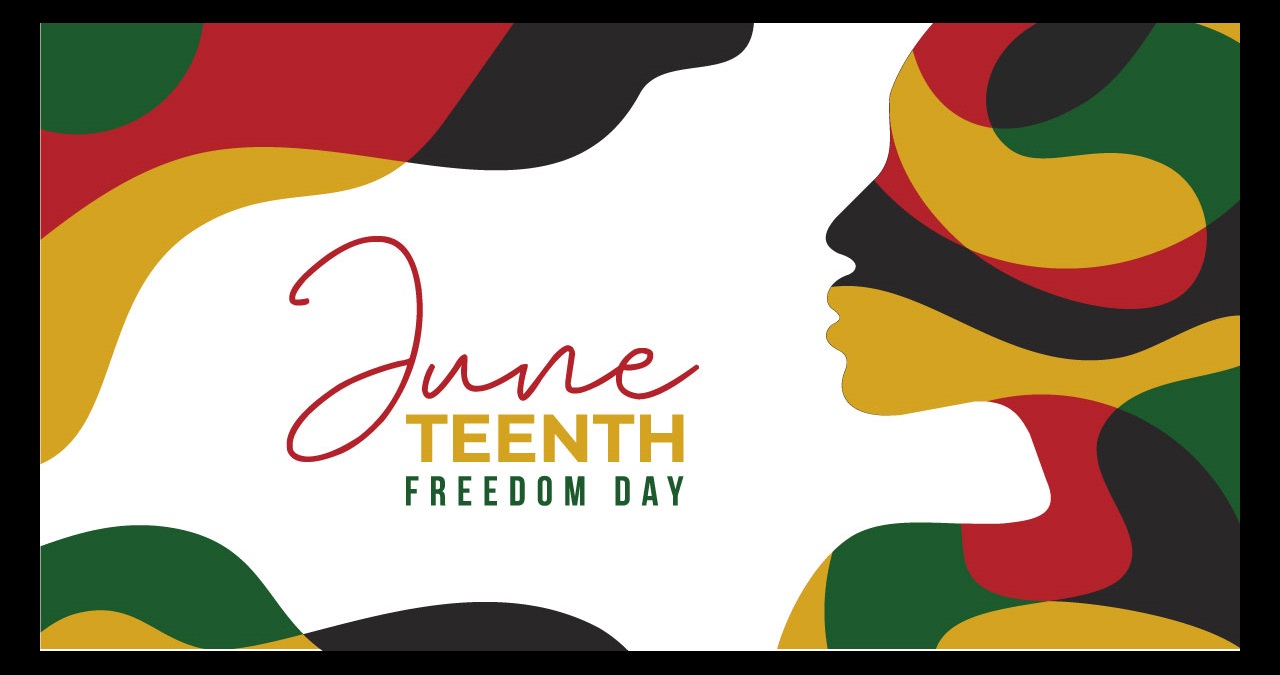
Juneteenth, or “Freedom Day,” is the oldest nationally celebrated commemoration of the ending of slavery in the United States. In 1863, during the American Civil War, President Abraham Lincoln issued the Emancipation Proclamation, which declared more than 3 million slaves living in the Confederate states to be free. However, more than two years would pass before the news would reach African Americans living in Texas. It was not until Union soldiers arrived in Galveston, Texas, on June 19, 1865, that the state’s residents finally learned that slavery had been abolished.
In many ways, Juneteenth represents how freedom and justice in the U.S. have repeatedly been delayed for Black people. For decades after the end of the civil war, we suffered intergenerational trauma from a wave of brutal lynchings, false imprisonment and inhumane healthcare, as well as Jim Crow governance, policies and laws structured and rooted against the well-being of all Black Americans.
What followed was the disproportionate impact of discriminatory policies on policing and incarceration, education, the economy, housing and healthcare structured to create the difficult human conditions that today are recognized as social determinants of poor health for Black Americans. The National Institutes of Health captures the situation best within the following statement published:
“African Americans remain the least healthy ethnic group in the USA, a somber legacy of years of racial and social injustice and a formidable challenge to equitable health care for all. Systemic causes of suboptimal black health require equally systemic solutions.”
One equally systemic solution is the work of the Black Directors Health Equity Agenda. The impetus and reason for our existence is the large disparity in health outcomes for the Black community, which have long been known and continue to be one of the most serious issues facing our healthcare system. Gaps for the Black community continue to be the most intransigent and the most difficult to close. The BDHEA’s focus on the Black community will lead to pathways for improvement in other communities.
Throughout my career, and knowing our history as a nation, I found myself constantly asking the question as a key leader of organizations, “Are we part of the problem or part of the solution?” The natural response for me was with the formation of our mission and role at Black Directors Health Equity Agenda to bring Black board directors and Black executives together from across the health ecosystem with healthcare providers, business leaders, governance leadership, policymakers and all health-focused organizations. We are articulating the business case for addressing the health disparities that impact Black communities and individuals. We are helping to ensure equitable access to healthcare and foster collaboration among the top health systems to share best practices and synergies. We are addressing social determinants and the drivers of health through meaningful practice programs while advocating for a long-term, positive impact through policy.
Recalling that freedom and justice have repeatedly been delayed for Black Americans, we now see clearly that the aspiration for quality healthcare and well-being of Black people has also been delayed. Only in the last 50 years can we say that all the discriminatory laws against Black Americans have been removed from the books. Structured systematic racism is the core reason why the magnitude of health outcomes and disparities still exist for Black Americans today. At the BDHEA, we draw on our members’ roles as healthcare leaders, their understanding of structural racism and health inequities, and their lived experiences as Black leaders to catalyze action by organizations, boards, companies, businesses, policymakers and government leaders. BDHEA is uniquely positioned to drive action on health disparities in our boardrooms, and is accountable to develop our allies, our communities and ourselves.
As all Americans reflect on and celebrate Juneteenth this year, we note the severe challenges we still face because of the pandemic and now inflation and increasing violence overwhelming our nation of caregivers, nurses, physicians, our entire healthcare workforce, and public health systems. Imagine if freedom for Black Americans was not delayed. What would this nation be if all its citizens had truly been freed to be healthy in 1863? It is time for all Americans to fully acknowledge the human suffering endured by Black Americans for centuries and to reckon with its effects on the present. Juneteenth gives us a moment each year not only to mark progress, such as our work at BDHEA, but to help us confront the historical harms that impact our current realities for all. I urge you and your organization to be part of the solution to end healthcare disparities for all.
Joe Wilkins Jr., FACHE, is managing director, JW Healthcare Insights. Most recently, Wilkins served as senior vice president/chief transformation and innovation officer at Atlantic Health System. He previously held executive roles at Quest Diagnostics and Danaher Beckman. He holds BS and MBA degrees from Argosy University.
Wilkins also served within several board roles; he governed Providence St. Joseph Hoag Health as board chair. He was also appointed as a board member of both the American Hospital Association and the California Hospital Association Board of Directors. Currently, he is a corporate board director for the Quidel Ortho Corporation, Mazzetti B-Corp and Providence Health Southern California Region. He serves as a founding member and board director for Black Directors Health Equity Agenda.
